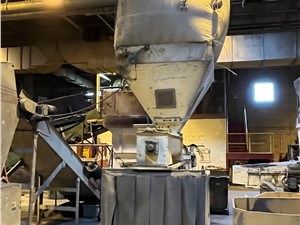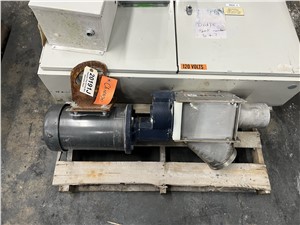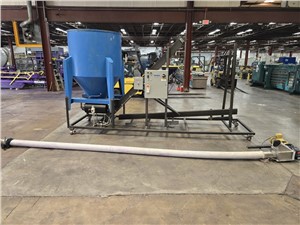Auger conveyors, also known as screw conveyors, are essential equipment for efficiently transporting materials in various industrial applications. They’re versatile, customizable, and compatible with a wide range of materials, making them a key component for many operations.
When selecting an Auger Conveyor, understanding the materials you’ll be transporting is critical to selecting the right conveyor. Materials that are abrasive or corrosive will require wear-resistant and durable components, particularly the auger’s flighting. Evaluate how easily the material flows to ensure smooth operation. Larger particles may require a wider auger diameter, while denser materials will demand a higher-powered conveyor for efficient transport.
Pro Tip: Determine the distance the material needs to be transported as the auger length directly affects performance and power requirements. Measure the required throughput, commonly expressed as the volume of material moved per minute or hour.
Ensure the auger can be easily filled from your material source while maintaining optimal flow rates. Consider the height and location where materials will be delivered and assess whether additional features (e.g., swing tubes) are needed for flexibility.
Durability and quality should be top of mind when investing in an auger conveyor. Look for thick flighting (12-gauge or thicker) to enhance durability and longevity. Look for easily replaceable flighting to reduce downtime and maintenance costs. Reinforced steel or specialized coatings for high-stress areas, such as hoppers and swing tubes, improve life expectancy. Square and properly aligned flighting joints contribute to smooth, efficient operation.
Auger conveyors can be adapted to meet specific operational requirements, evaluate available floor space, ceiling height, and layout before selecting the conveyor’s design. Tailor hopper slopes to accommodate the material’s flow characteristics and prevent blockages. For food or chemical industries, stainless steel casings are ideal for ensuring hygiene and resistance to corrosion.
Auger conveyors are employed in a variety of industries and applications, such as:
- Food Processing: Hygienic stainless-steel screw conveyors are used to transport powdered milk, grains, and spices.
- Agriculture: Moving seeds, grains, or feed efficiently between storage and processing facilities.
- Chemical and Pharmaceutical Industries: Transporting powdered chemicals or medications requiring precision and containment.
- Construction: Handling loose aggregates like sand, cement, or gravel.
- Recycling: Moving bulk waste materials like shredded plastics or glass particles.
Pro Tip: Proper maintenance ensures optimal performance and extends the lifespan of an auger conveyor. Check for wear and damage on flighting, casing, and drive systems. Ensure bearings and drive components are regularly lubricated to prevent unnecessary wear. Regularly clean the auger to prevent material buildup, which can cause jams or inefficiencies. Replace worn-out parts, such as flighting or seals, promptly to maintain smooth operation.
Want to take the guesswork and stress out of the buying process? Contact Arlington Machinery today and let us show you why were the top choice for buying, selling, or repairing used plastics and recycling machinery for over 35 years.




.jpg)
.jpg)
.JPG)
.jpg)
.jpg)
.JPG)
.JPG)
.JPG)